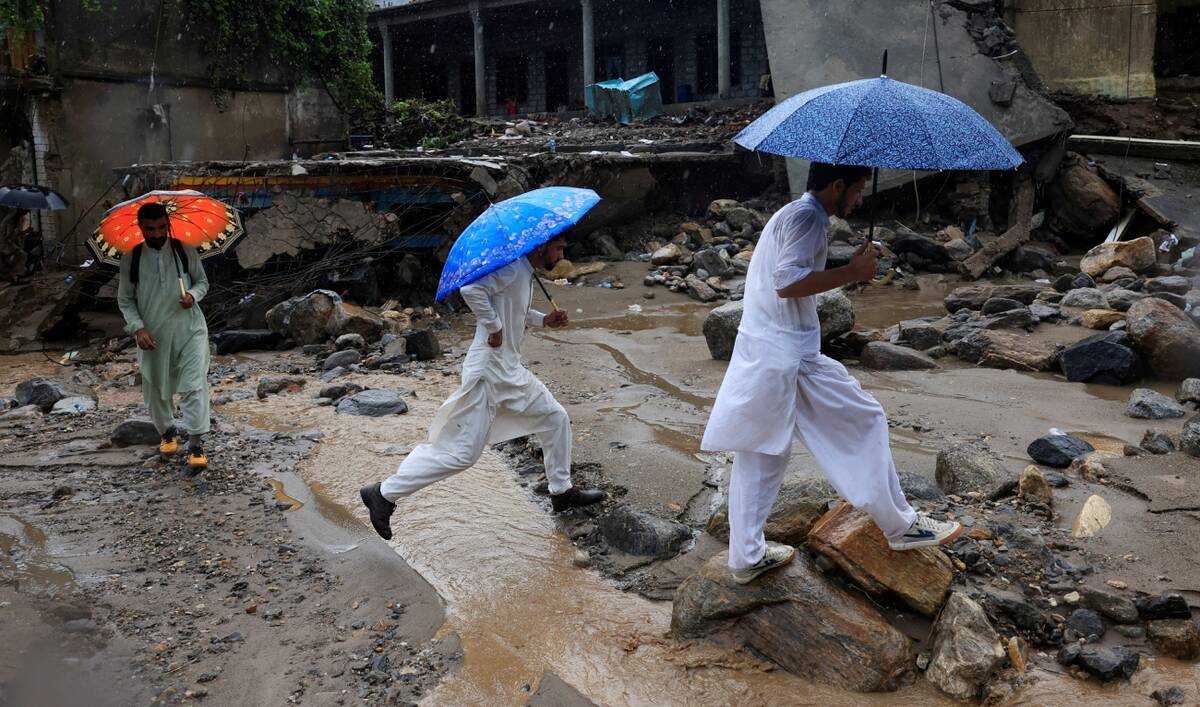BAREELA: A Pakistani primary school is targeting students from poor families to give them a chance at an education for a fee of one rupee ($0.0036) a month, hoping they can build a foundation for further education and help their families escape poverty.
Pakistan has the world’s second-highest number of out-of-school children with an estimated 22.8 million kids aged 5-16 not at school, representing 44 percent of the total population in this age group, according to UNICEF.
Zahid Kazmi, 47, is on a mission to change this with his Babul Ilm, or Gate of Knowledge, school in Bareela, his native town with a population of over 20,000 in Haripur district in the northwestern Khyber Pakhtunkhwa province.
The establishment started as a kindergarten in 2017 with 50 children and is now a primary school with over 200 students enrolled. Besides the one-rupee a month fee, the school also provides free books, stationery, school bags and uniforms, and covers transportation costs.
“Our target is to bring children to school who cannot get education due to shortage of resources,” Kazmi, who is from a well-off local family, said in an interview at the five-room school spread over 900 square yards along a main artery of Bareela.
“This is our basic focus, and obviously this includes children whose parents’ income is below a specific level … The kids who are known as street children, we are enrolling them in the school.”
“Majority of our people have very limited resources to afford to send their children to school, so I decided to contribute my little part in educating the underprivileged children through this school.”
Kazmi said it was a struggle initially to convince parents in the area to send their children to the school due to socio-cultural reasons and poverty, with many fearing the one-rupee fee would be jacked up at a later stage.
The school is run by a team of 12 staff members, including teachers, a female helper and a security guard, who draw a monthly salary. A core group of Kazmi’s friends help him bear the school’s expenses, including paying for transport for students Bareela and surrounding villages.
“We had another commitment with the children that we will provide them with food, but we couldn’t due to shortage of resources,” Kazmi said.
The school management goes through a rigorous process every year to convince parents to enroll their kids and to ensure that only deserving families are granted admissions.
“We give admission to the children here after a thorough research that they deserve it,” Babul Ilm principal Zubiya Mubeen said.
“It is easy for parents [to approach us], the school is in the same area, so parents can come here easily.”
Initially, the school enrolled 20 to 25 students every year in nursery, but it has had to double the number in the last two years due to economic hardships amid soaring inflation in Pakistan, which hit a record 38 percent in May.
“Last year we enrolled over 50 children in nursery,” Kazmi said.
Poor families in the area called the school a “blessing,” saying they were unable to afford private or even public schools where there is no fee but parents had to bear expenses like transportation, stationery and uniforms.
“Firstly, it [the school] is near our home, secondly, we don’t have resources to get our children enrolled in any private school,” Ayesha Bibi, a mother of three students in Babul Ilm school, told Arab News. “Even in government schools, they give books [free] but you have to buy other stationery ... They [Babul Ilm] provide the books, notebooks, bags and give pencils, sharpener and eraser even daily if needed.”
The management has also ensured that at least half the kids enrolled are girls in a conservative region where most parents are hesitant to send daughters to school.
“Today’s daughter is tomorrow’s mother,” Bibi, whose daughter studies at Babul Ilm, said. “If I do good upbringing of her, she will take care of her home better too. If she studies today, she will lead a better life tomorrow.”


















